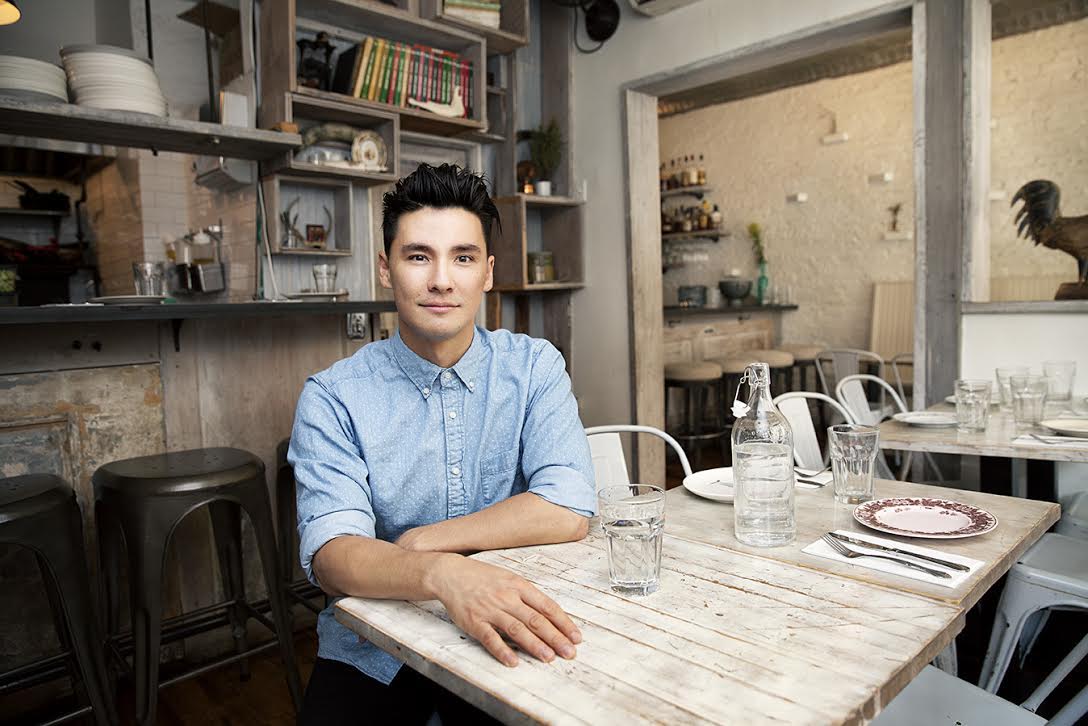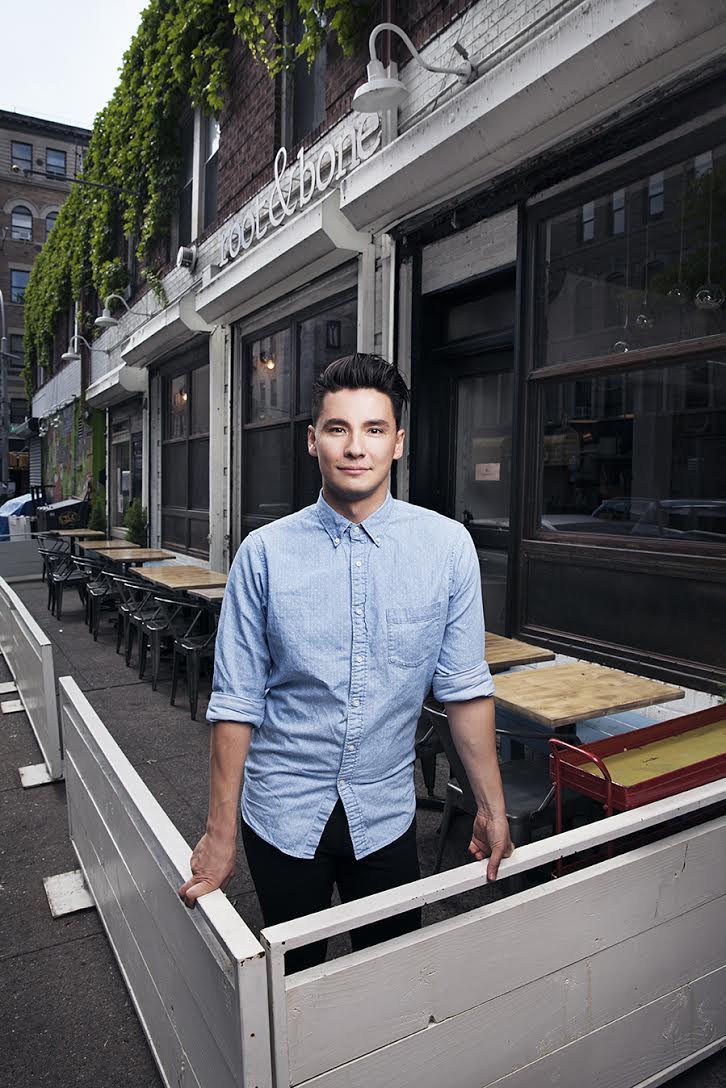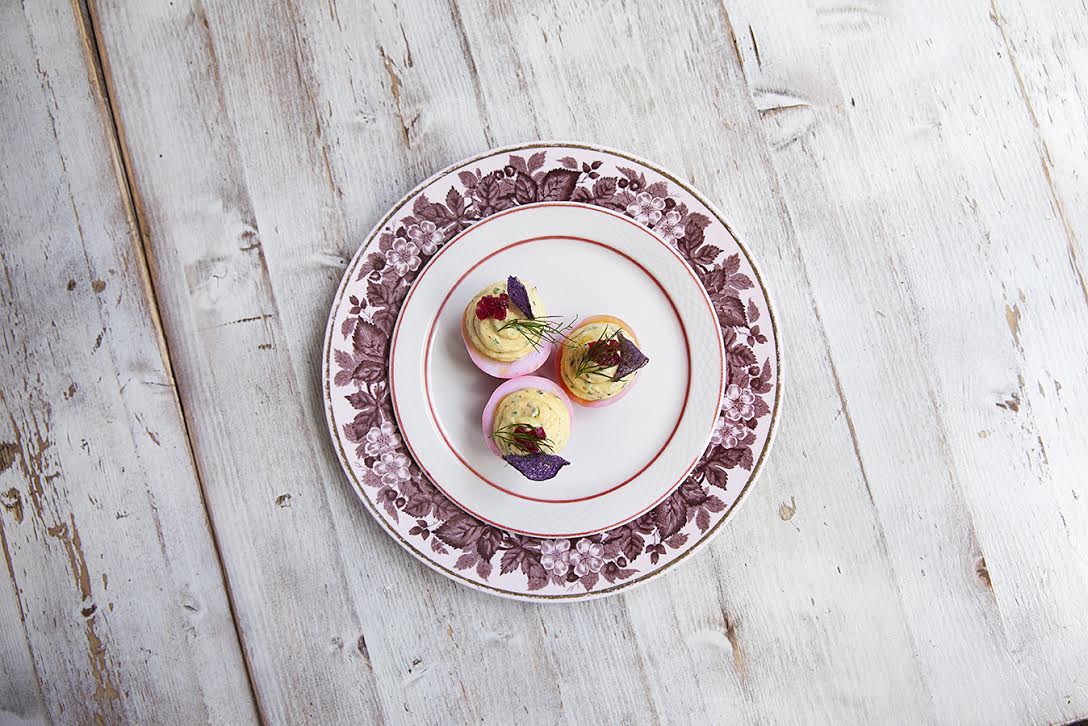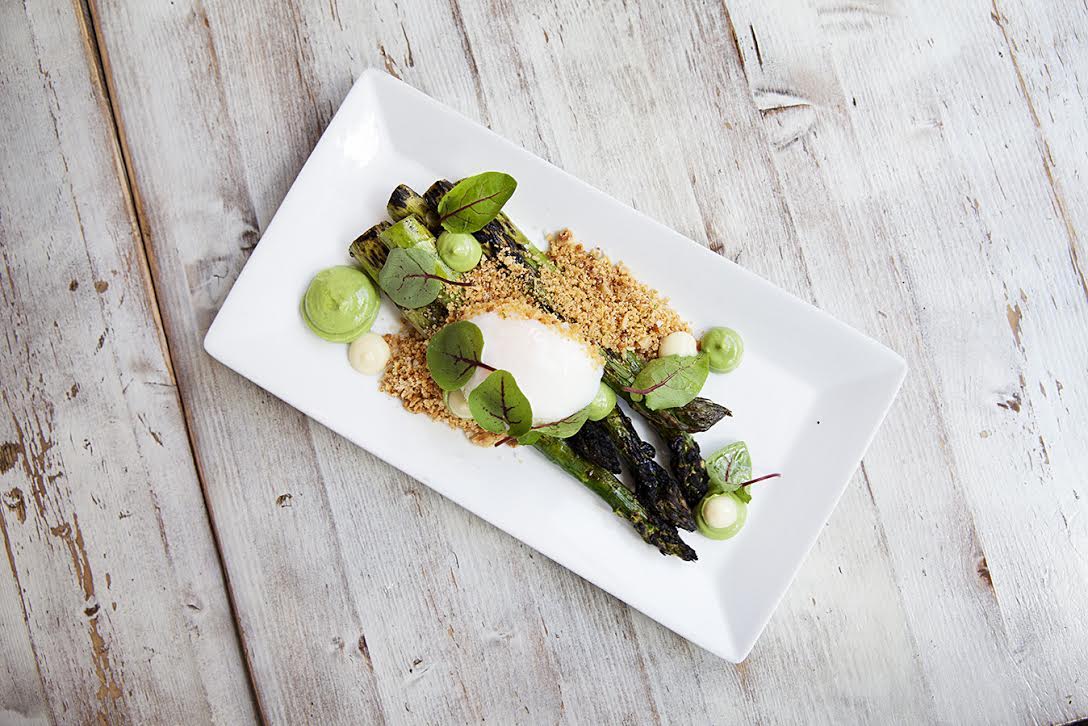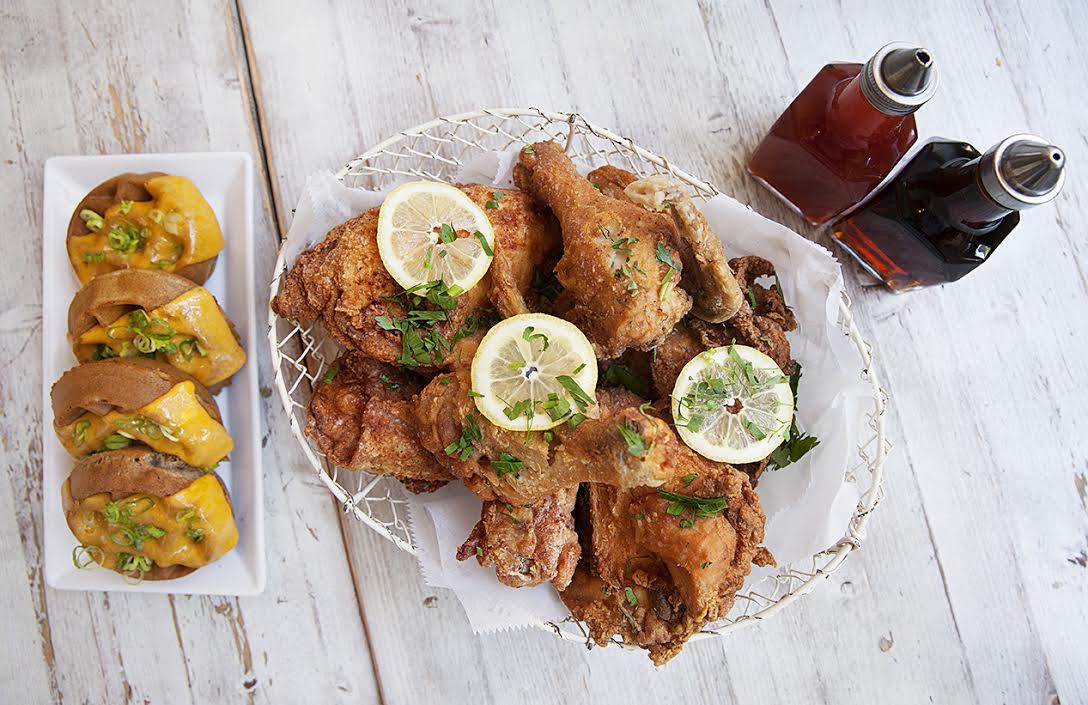David Olson has good skin. It’s the kind that just glows, like he’s eating nothing but avocado salads and fish oil supplements and sleeping more than you are.
He definitely isn’t—as the general manager of East Village Southern food hot-spot Root & Bone, his days start early and stretch into the wee hours of the night, and his diet is peppered by award-winning fried chicken and fresh biscuits. That skin, though. There’s gotta be an explanation for it.
“Every time I’m here, he’s always doing something interesting. Once he was talking about how he etches designs onto the wooden handles of pocket knives,” says Crystal Wang, who does publicity for Root & Bone . When I stopped in for lunch, Olson had been putting together patio furniture—which he built himself, a rainy-day “vanity project” to save the restaurant money on patio seating—Wang mentioned he had an architecture degree. “He was also talking about making lotion the other day…” she added, trailing off.
Olson, who is 34, realized after he got his degree from Columbia University that he didn’t like the work of being an architect. What he did love was the fantasy hospitality can create. His senior thesis was actually about hotels, and how spatial design creates a third place far removed from home or work. So in 2004, armed with an Ivy League degree and a sense of how to navigate the cutthroat world that came with it (people in his classes used to take out all the relevant books from the library months before a paper was due, he recalls) he got a job bussing tables at 66, Jean Georges’ nouveau-Chinese Tribeca outpost.
After working his way up to server, he left to work at Bette, a once-buzzy celebrity hotspot that closed in 2008. There, he delved into the world of 5 a.m. nights, frequent run-ins with the rich & famous, and “making a ton of money,” as he puts it. He then moved through a few more restaurants, including Landmarc, where he was fired for standing up for one of his bussers after a patron had reportedly called them “retarded.” As it turns out, the woman was a well-known food blogger, and she tweeted about the incident. There went David’s job.
“It’s a funny thing to be in this industry, because ultimately it’s just food,” he says. “But the level of angry that people can get about food is just crazy.”
Olson doesn’t regret that fateful interaction for a moment, however, and not just because it freed him up to join the Root & Bone team.
“I’m a big believer in my staff,” he says firmly. “I want to take care of them and I want them to know I’m on their side no matter what. And while customer service is important, it’s more important to have people that work for you trust that you’ll protect them when it comes time.”
This valiant attitude can be traced back to his father, a colonel in the Air Force who believed in humans’ power to administer small, everyday instances of justice.
“My dad always said that the world is a very unfair place, and if you have the opportunity to make it a little more fair, you have to take it,” he says. “I think about that all the time. Is this really fair? Am I being as equal as I should be in this situation? ”
Olson and his family—his father, his mother, and his transgender brother, who works as an accountant—moved around frequently as a result of his father’s job. They’ve lived in Alaska, Hawaii, South Carolina, and even South Korea, where his mother is from. He recalls big commotions when he and his family would go out to Korean food because his father is Norwegian (read: very much not Korean), and Korean restaurants are notoriously sealed off from non-Koreans. “The food in Koreatowns is being cooked by Koreans, for Koreans,” Matt Rodbard, author of Koreatown , says. “It’s not that they don’t want non-Koreans eating there, they’re just think: this is for my community, and that’s enough.”
To add another influence to the mix, his godmother is from South Carolina, and so in many ways the Southern fare at Root & Bone feels like a homecoming.
“I don’t look it, I don’t sound it, but I feel spiritually like a Southern person,” Olson says. “It’s very much comfort food and memory food to me, and I love it. I was so excited when we finally got Cheerwine (a soda from North Carolina).”
So his skin, though—not to keep harping on it, but there’s an answer. His extra-curricular lotion-making is actually a full-blown side hustle called Nordiste, a link of skin care Olson created based on terroir…yes, like wine. Each product is made from a group of plants that grow in the same climate; there are 12 varieties, from desert and savannah to forest and grasslands, though the line is still in production. He initially wanted to be a perfumer, taking a year of classes at the Fashion Institute of Technology with the goal of relocating to Paris to pursue that career. In the end, he couldn’t pass the professional test, which requires each individual to differentiate between the scents of distinct varieties of lemon, for example.
Olson’s foray into perfume taught him some powerful lessons, and not about the world of beauty—rather, he learned firsthand about the power of the natural world to guide us through life’s strange and winding paths. Like, say, the one from architect to restaurant manager/skin care maker.
“There’s a chemical called indole, and it’s present in most things. But it’s really, really present in roses and jasmine,” Olson says. “And my instructor was saying there’s a reason people love the smell of roses—because they have this smell of indole, which in its pure form, smells like shit, basically. It smells like rotting things.”
“We give it off, too,” he goes on. “It’s the smell of decay. And the reason why roses and jasmine are so intoxicating is that they give off a really, really high percentage of indole. So the things that we love the most, the things that smell the most beautiful to us, the things that are just the most captivating are the things that are constantly and consistently expressing their decay. And isn’t that the most beautiful thing? It’s like yea, you should stop and you should smell the flowers, because it’s all going to be gone one day. But it’s the knowledge of eventual death that makes it the most beautiful. And I was like, woah, damn, okay .”
This mentality may be what has allowed him to move so seamlessly through both childhood moves and the fickle and quick-changing restaurant and hospitality industry. It’s also what grounds him in his current job. To him, his staff and his work at Root & Bone is like a garden needing constant cultivation; each staff member and each diner has different needs and patterns, and they all need to fit together as a harmonious whole. It’s also a humbling experience, working in a restaurant. It gets you down in the dirt, no matter how tall you’ve grown or how far you’ve traveled.
“Sometimes I’ll be cleaning up some lady’s vomit and think to myself ‘I have an Ivy League education,'” he laughs. “But really, this is the soil I’ve been given. Some people will not flourish in this soil, some people will if you water them correctly, some will just grow and be fine on their own. But my job is to talk to people, to know them well enough to know that they need a little more watering and they need a little more time. And if they don’t succeed, those failures are mine. That’s how I view management.”
Maybe that’s the secret to his glow: water, time, and a willingness to get down and dirty for the love of it.


